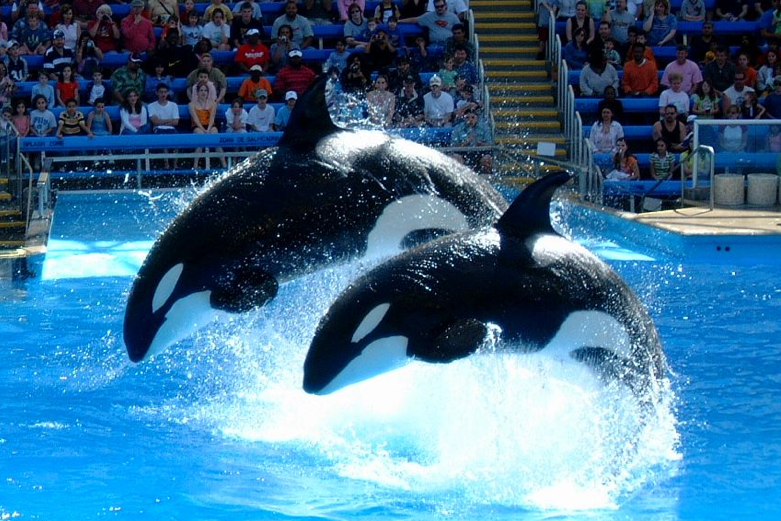A recent hearing held in San Diego is making waves across the frontier of civil rights. For the first time in U.S. history, a federal judge, U.S. District Judge Jeffrey Miller, is reviewing a case that could determine whether animals can enjoy the same constitutional protection against slavery as human beings.
It all began after a lawsuit was filed by People for the Ethical Treatment of Animals (PETA) naming five orcas as plaintiffs in a case against Sea World. Sea World moved immediately to dismiss it enlisting attorney Theodore Shaw in their defense while the plaintiff (PETA) was represented by attorney Jeffrey Kerr. Not to be confused with a case about abuse, we have listed both sides below.
PETA’s attorney Jeffery Kerr claimed:
1) The captured killer whales are treated like slaves. They are forced to live in tanks and are forced to perform daily at the parks in San Diego and Orlando, Fla.
2) Sea World employees are in violation of the 13th amendment because their conduct is “enslaving an intelligent, highly social species that suffers from its confinements in ways similar to what humans would experience.” (1)
3) Brushing animals off as property is the same argument that was used against African-Americans and women before their constitutional rights were protected.
“By any definition these orcas have been enslaved here.”- Jeffery Kerr (1)
Sea World’s attorney Theodore Shaw defended:
1) The suit defies common sense and goes against 125 years of case law applied to the Constitution’s 13th amendment that prohibits slavery between humans. He points out that argument does not translate because both women and African-Americans are people for which the Constitution was written to protect.
2) The lawsuit is a waste of the court’s time and resources.
“With all due respect, the court does not have the authority to even consider this question,” Shaw said, adding later: “Neither orcas nor any other animal were included in the `We the people’ … when the Constitution was adopted.”(1)
While PETA faces an uphill battle, the implications of a ruling in their favor could mean more than Sea World having to possibly change their business model, but revision in animal rights across the board. Good and bad could come out of it. It wouldn’t just change how animals in the entertainment industry are treated, but how zoos, reserves, and scientific research done in the wild perform; even how dogs are used to sniff out bombs. Essentially, a whole new branch of law would need to be created involving animals individually based on their own merits. (1)
Even while Shaw alarmed that “We’re talking about hell unleashed.” Miller advised that he would make a careful ruling at a later date.
Source: (1) Huffington Post “PETA’s Sea World Lawsuit Focuses On Constitutional Protection Against Slavery For Animals ” by Julie Watson www.huffingtonpost.com February 6, 2012







